1st Prince of Coffee House
During the summer, I worked with a Korean Ph.D. candidate on a research project. He is an awesome person and made time at work pass by very quickly because we would talk constantly about Korean dramas and music. He had hooked up a stereo system in the lab and would introduce me to new artists and songs everyday. Having Epik High and Wonder Girls pumped at full volume in a lab has a very surreal quality. Research has never been so fun. Good times.
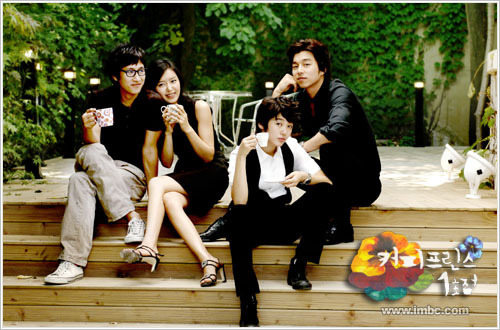
One of the shows he recommended to me is 1st Prince of Coffee House, a 2007 Korean drama. Japanese dramas are my mainstay because as I’ve stated previously, they seem to have much more variety. Korean dramas, while in general featuring better acting, tend to be too melodramatic for my tastes, even for the shows with a comedic focus. Plus, Korean dramas are quite long, averaging 16 episodes compared to the typical 10-12 for Japanese dramas.
I don’t watch too many Korean dramas for these reasons, but based on his heavy recommendation, I decided to watch this show. I think I’ve stumbled across the magic recipe for Korean dramas: two good-looking guys and two good-looking girls, each guy likes both girls and each girl likes both guys. Instead of a love triangle, they have love squares. 4 main characters is the perfect number to introduce enough plot points to sustain a 16 episode long series. Throw in some complications and misunderstandings for everybody to agonize over, wrap it up nicely, and there you have it, a Korean drama!
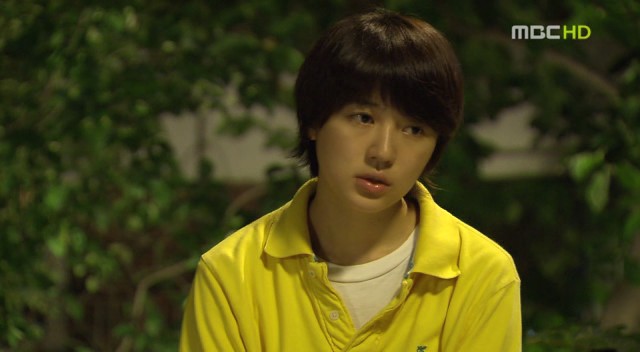
Go Eun Chan (played by Yoon Eun Hye) is a hard-working daughter who takes on many jobs to help support her mom and younger sister. Because of her hard life, she has long shed her feminine image and has a very bold and blunt personality, not to mention masculine traits like unashamedly pigging out when eating.
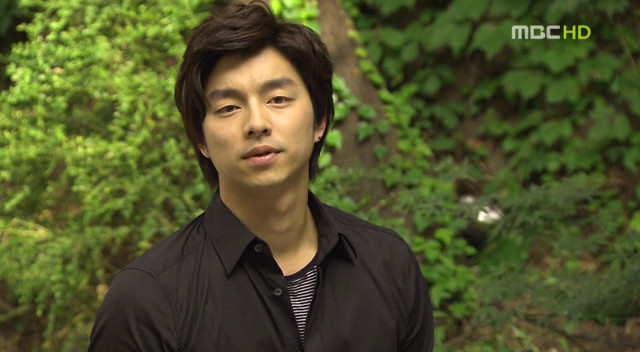
Choi Han Kyul (played by Gong Yoo) is a wealthy playboy who will be inheriting a food company. He thinks of himself as a hotshot, but his grandmother, the current president of the company, wants him to stop fooling around and get married so she forces him to go on many arranged dates. Han Kyul gets fed up with these dates. One day, he encounters Eun Chan and mistakes her as a boy. Han Kyul gets the idea to hire “him” as a gay lover to piss off his grandmother and to stop the dates. Eun Chan is desperate for money so she accepts.
In retaliation, the grandmother forces Han Kyul to take over a failing coffee shop and challenges him to make it profitable in three months or she’ll be shipping him abroad. Eun Chan signs up to be one of the employees at the coffee shop. The theme of the shop is that patrons are served by handsome princes, but since virtually everyone thinks Eun Chan is a boy, she isn’t excluded from working there.
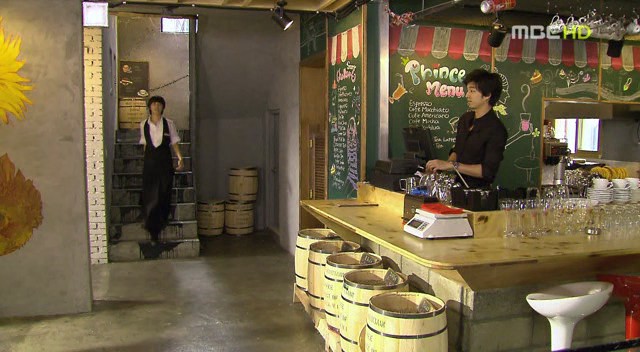
And so the drama proceeds from there. While Han Kyul initially hired Eun Chan as a joke gay lover, he gradually starts to fall in love with her at the coffee shop, as you might expect. 1st Prince of Coffee House has an added dimension of the leading male role confused by his “homosexual” leanings, which is where a lot of the comedy (and conflict) originates. The fact that everybody thinks Eun Chan is a boy also conveniently introduces new plot points as the surrounding workers at the shop one-by-one discovers her true identity and word starts to get out.
You might be wondering about the other two vertices of the love square. Strangely enough, while these two characters do indeed interact quite a bit with Eun Chan and Han Kyul, they have nothing to do with the coffee house.
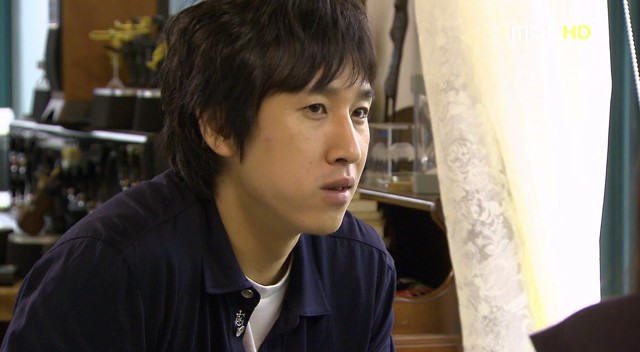
Choi Han Sung (played by Lee Sun Gyun) is Han Kyul’s cousin and is a music producer/composer.
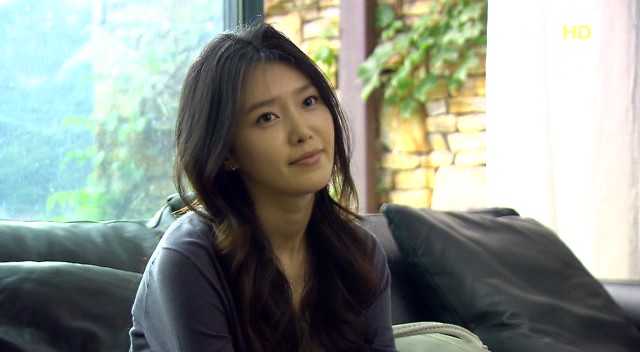
Han Yoo Joo (played by Chae Jung Ahn) is Han Sung’s girlfriend of many years, who left him for another guy a couple years ago but came back. Han Kyul has long liked her, but held off because she was involved with his cousin.
These two characters are what inspired my theory of the Korean love square and drama formula. They have absolutely no connection with the coffee house plot and are in the drama purely to be sources of romantic entanglement. Yes, I understand that the focus of the drama is not about life at a coffee house and is about romantic relationships, but I have never seen two characters so contrived precisely solely for the purpose of causing conflict.
The show starts off with the light-hearted comedy I was expecting from my research partner’s description. From the “gay” dates to the adventures at the coffee house, there were a lot of laughs to be had. I would say the first third of 1st Prince of Coffee House were the most enjoyable for me. Then, as the romances started getting complicated and tension ratcheted up among all the characters, I lost a lot of interest in the show. Too much drama in my Korean comedy drama! (by the way, I don’t know if it’s confusing for you that these shows are called dramas. That’s the general classification for all these Asian shows, even though many of them are actually comedies).
Another point to note is that the climax of the show occurs early and all the main conflicts are resolved with about 4-5 episodes to go. The rest of the show is smooth coasting, with some “conflicts” popping up that didn’t seem like a big deal to me, though I suppose some people might disagree with me. Between all the crying and tension in the middle episodes of the drama, which bored me, and what I viewed as an long, extended dénouement that lasted the final 5 episodes, I literally watched the majority of this show with the playback speed set at 2X so I could hurry up and finish this thing.
That’s not to say the acting wasn’t great or anything, because I’m sure many people were engrossed with the romances and absolutely loved following the conflicts and were bawling at the right moments. It’s a quality show, just not what I was looking for nor expecting, though I probably should have known better!
A few extra screencaps since I had them handy:
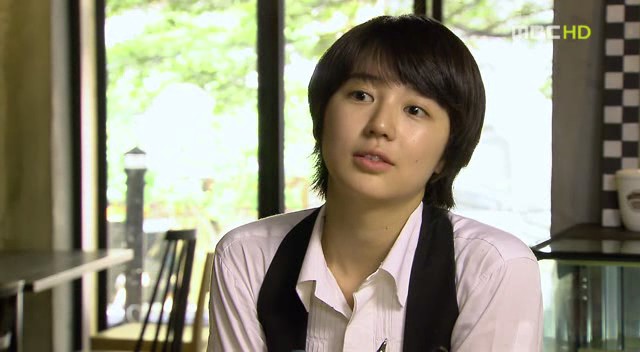
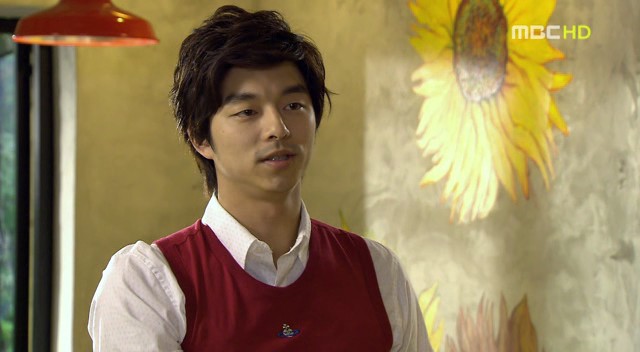
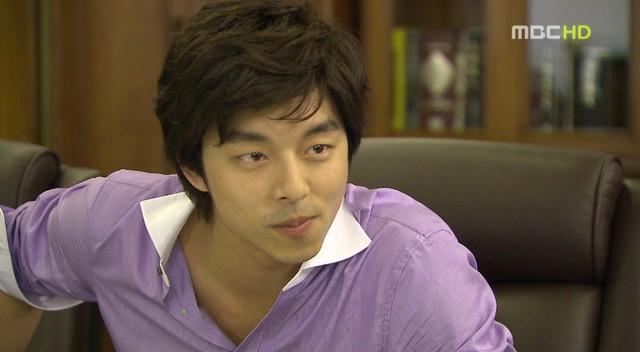
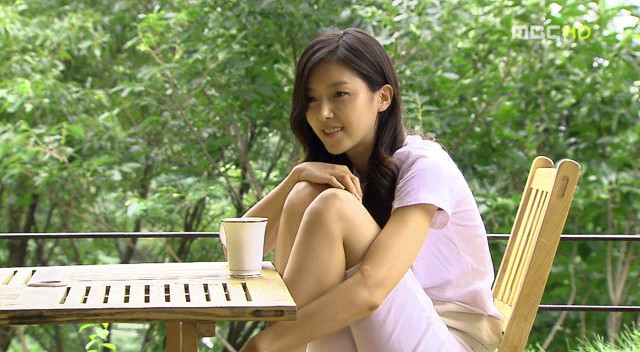
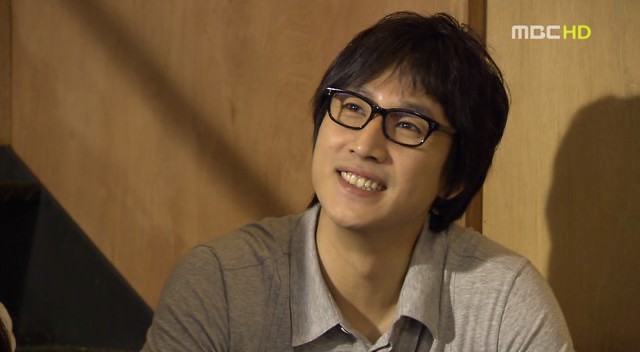
Facts
17 episodes
Aired Summer 2007
Genre: Romance, comedy
Links
Official Korean site
Drama Wiki page
D-Addicts Bittorrent download page
